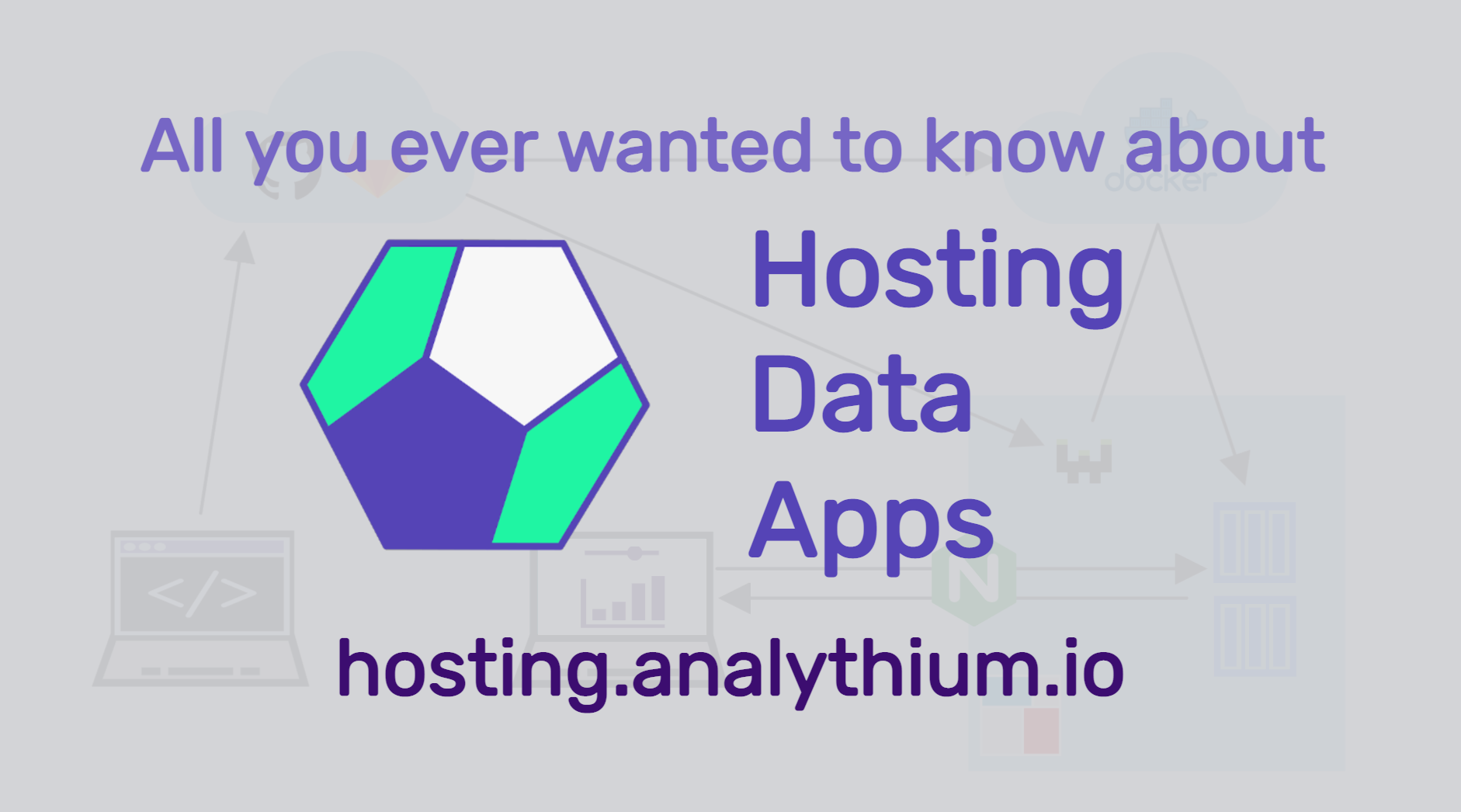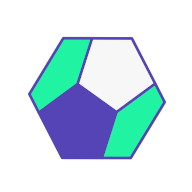What Is a Data App?
Originally published at Hosting Data Apps blog on 2021–05–04.
Data apps are modern web applications that simplify data-intensive operations and provide value to users by answering very specific questions.

Our new online publication is about hosting data apps. But what is a data app and why do you need hosting for it? Data apps are modern web applications which have some features that differentiate these apps from traditional websites. These apps are used by the end user for a specific task.
The primary goal of data apps is to simplify data-intensive operations. For non-technical users this means to simplify a sophisticated/complex task. For technical users it offers and intuitive understanding of complex relationships through interactive visualization, or it can help in institutionalizing these workflows.
The steps involved in simplifying data-intensive operations resemble more traditional workflows used by analysts through the command line:
- Data import (files, databases)
- Data transformation (extract–transform–load; ETL)
- Summarizing the data (descriptive statistics)
- Visualization and exploratory data analysis (EDA)
- Repeat these steps for different subsets/slices of the data (interactive, reactive)
- Save or export results & store application state (files, databases)
Because these apps allow users to interact with the data, these apps share some similarities with desktop software (think Excel), but unlike desktop applications, data apps are accessed through the browser. There is also a distinction between our definition of data apps and general-purpose analytics tools, like PowerPI, Tableau, etc. – see a really long list here. These tools are excellent and versatile, but require significant investment (licensing fees, hiring and training staff) before delivering value.
Data apps are focused on answering very specific questions and require only moderate up front investment. Dashboards are an example where you need to have an idea of useful metrics to report on for the dashboard to be useful for decision making. In this sense, data apps have a well defined scope and provide value that can lead to agility, cost reduction, and better precision.
After the resources spent on app development, maintenance costs will be determined by what kind of setup and hosting is required to deliver value for the users of the app. The user experience also largely depends on the performance of the servers the apps are running on, because most of the computations happen at the server side – i.e. on a remote computer or in the cloud.
The client's machine specifications are less important. Data apps are expected to run on desktops, laptops, tablets, and phones. This is good news for app developers, because data apps can be written in many different programming languages and still can result in a comparable user experience. One might prefer Python or R, others might use JavaScript. The end result will be very similar: a data app running in the browser.
Data apps simplify data-intensive operations by answering very specific questions. Data apps can result in better decisions in less time. How you host your data apps matters because it relates directly to the user experience while also contributing to your operating expenses. The goal of this website is to help you make smart choices and teach you the skills needed to host your own data apps.
We have helped individuals and organizations to better deliver their data science with data apps. Get in touch if you need commercial support and consulting services! Send us an email, connect with us on Twitter or Linkedin.





